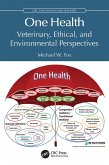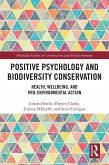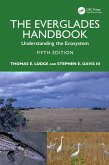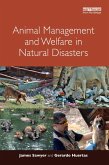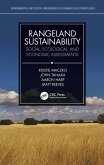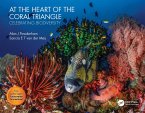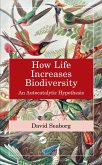Ernest Small
In Defense of the World's Most Despised Species (eBook, ePUB)
Why we love some species but hate most, and why it matters
48,95 €
48,95 €
inkl. MwSt.
Sofort per Download lieferbar

24 °P sammeln
48,95 €
Als Download kaufen

48,95 €
inkl. MwSt.
Sofort per Download lieferbar

24 °P sammeln
Jetzt verschenken
Alle Infos zum eBook verschenken
48,95 €
inkl. MwSt.
Sofort per Download lieferbar
Alle Infos zum eBook verschenken

24 °P sammeln
Ernest Small
In Defense of the World's Most Despised Species (eBook, ePUB)
Why we love some species but hate most, and why it matters
- Format: ePub
- Merkliste
- Auf die Merkliste
- Bewerten Bewerten
- Teilen
- Produkt teilen
- Produkterinnerung
- Produkterinnerung

Bitte loggen Sie sich zunächst in Ihr Kundenkonto ein oder registrieren Sie sich bei
bücher.de, um das eBook-Abo tolino select nutzen zu können.
Hier können Sie sich einloggen
Hier können Sie sich einloggen
Sie sind bereits eingeloggt. Klicken Sie auf 2. tolino select Abo, um fortzufahren.

Bitte loggen Sie sich zunächst in Ihr Kundenkonto ein oder registrieren Sie sich bei bücher.de, um das eBook-Abo tolino select nutzen zu können.
In Defense of the World's Most Despised Species examines the psychological motivations that lead people to make judgments about the attractiveness of species, noting the overwhelming importance of visual cues. It describes in considerable detail the physical and behavioral traits of species that lead us to love or hate them.
- Geräte: eReader
- mit Kopierschutz
- eBook Hilfe
Andere Kunden interessierten sich auch für
![One Health (eBook, ePUB) One Health (eBook, ePUB)]() Michael W. FoxOne Health (eBook, ePUB)52,95 €
Michael W. FoxOne Health (eBook, ePUB)52,95 €![Positive Psychology and Biodiversity Conservation (eBook, ePUB) Positive Psychology and Biodiversity Conservation (eBook, ePUB)]() Jolanta BurkePositive Psychology and Biodiversity Conservation (eBook, ePUB)45,95 €
Jolanta BurkePositive Psychology and Biodiversity Conservation (eBook, ePUB)45,95 €![The Everglades Handbook (eBook, ePUB) The Everglades Handbook (eBook, ePUB)]() Thomas E. LodgeThe Everglades Handbook (eBook, ePUB)140,95 €
Thomas E. LodgeThe Everglades Handbook (eBook, ePUB)140,95 €![Animal Management and Welfare in Natural Disasters (eBook, ePUB) Animal Management and Welfare in Natural Disasters (eBook, ePUB)]() James SawyerAnimal Management and Welfare in Natural Disasters (eBook, ePUB)41,95 €
James SawyerAnimal Management and Welfare in Natural Disasters (eBook, ePUB)41,95 €![Rangeland Sustainability (eBook, ePUB) Rangeland Sustainability (eBook, ePUB)]() Kristie MaczkoRangeland Sustainability (eBook, ePUB)47,95 €
Kristie MaczkoRangeland Sustainability (eBook, ePUB)47,95 €![At the Heart of the Coral Triangle (eBook, ePUB) At the Heart of the Coral Triangle (eBook, ePUB)]() Alan J PowderhamAt the Heart of the Coral Triangle (eBook, ePUB)49,95 €
Alan J PowderhamAt the Heart of the Coral Triangle (eBook, ePUB)49,95 €![How Life Increases Biodiversity (eBook, ePUB) How Life Increases Biodiversity (eBook, ePUB)]() David SeaborgHow Life Increases Biodiversity (eBook, ePUB)64,95 €
David SeaborgHow Life Increases Biodiversity (eBook, ePUB)64,95 €-
-
-
In Defense of the World's Most Despised Species examines the psychological motivations that lead people to make judgments about the attractiveness of species, noting the overwhelming importance of visual cues. It describes in considerable detail the physical and behavioral traits of species that lead us to love or hate them.
Dieser Download kann aus rechtlichen Gründen nur mit Rechnungsadresse in A, B, BG, CY, CZ, D, DK, EW, E, FIN, F, GR, HR, H, IRL, I, LT, L, LR, M, NL, PL, P, R, S, SLO, SK ausgeliefert werden.
Produktdetails
- Produktdetails
- Verlag: Taylor & Francis eBooks
- Seitenzahl: 750
- Erscheinungstermin: 5. Oktober 2023
- Englisch
- ISBN-13: 9781000953213
- Artikelnr.: 68616486
- Verlag: Taylor & Francis eBooks
- Seitenzahl: 750
- Erscheinungstermin: 5. Oktober 2023
- Englisch
- ISBN-13: 9781000953213
- Artikelnr.: 68616486
- Herstellerkennzeichnung Die Herstellerinformationen sind derzeit nicht verfügbar.
Dr. Ernest Small received a doctorate from the University of California at Los Angeles in 1969. He has since been employed with Agriculture and Agri-Food Canada, the country's national department of agriculture, where he presently holds the status of Principal Research Scientist. He specializes on the evolution and classification of economically important plants, dealing particularly with food, forage, biodiversity, and medicinal species. The species Trigonella smallii (Small's sweetclover) was named in his honor, and he himself has named dozens of new species. He is the author of 15 previous books, six of which received or were nominated for major awards. He has also authored over 400 scientific publications, mostly on economically important plants. Dr. Small's career has included dozens of appearances as an expert witness in court cases, acting as an adviser to national governments, presenting numerous invited university and professional association lectures, participating in international societies and committees, journal editing, and media interviews. He has been an adjunct professor at numerous universities, and continues to supervise doctoral candidates. Dr. Small has received several professional honors, including: election as a Fellow of the Linnean Society of London; the G.M. Cooley Prize of the American Association of Plant Taxonomists for work on the marijuana plant; the Agcellence Award for distinguished contributions to agriculture; the Queen Elizabeth Diamond Jubilee medal for contributions to science; the George Lawson Medal, the most prestigious award of the Canadian Botanical Association, for lifetime contributions to botany; the Lane Anderson Award, a $10,000.00 prize for science popularization; the Industry Leadership Award of the Canadian Hemp Trade Association (subsequently renamed in his honor); the Outstanding Paper in Plant Genetic Resources Award of the Crop Science Society of America; and appointment to the Order of Canada, the nation's highest recognition of achievements.
Introduction and Chapter Summaries. The Cruel and Compassionate Sides of
Human Nature. Human Prejudice against other Species (Speciesism). Size: The
most Important Determinant of Human Prejudice against and Preference for
Species. Visual Determinants of Human Prejudices against and Preferences
for Species. Non-visual Determinants of Human Prejudices against and
Preferences for Species. Symbolic Creatures: Reflections of Human
Prejudices against and Preferences for Species. Indispensable Values of
Species for Human Welfare. Extinction: How Biased Elimination of Species
Endangers Humans. Bias and Prejudice in Species Conservation. Dealing with
Dangerous Species. Reforming Agriculture: The Greatest Threat to Species.
Reforming Urbanization: The Second Major Threat to Species. Advancing
Technologies and the Fate of the World's Species. In Defense of the World's
most Despised: Invertebrate 'Bugs. 'Lower' Vertebrate Animals. Mammals.
Toxic Plants. Agricultural Weeds. Environmental Weeds. Urban Weeds.
Epilogue: Tolerant Co-existence vs. Justifiable Biocide.
Human Nature. Human Prejudice against other Species (Speciesism). Size: The
most Important Determinant of Human Prejudice against and Preference for
Species. Visual Determinants of Human Prejudices against and Preferences
for Species. Non-visual Determinants of Human Prejudices against and
Preferences for Species. Symbolic Creatures: Reflections of Human
Prejudices against and Preferences for Species. Indispensable Values of
Species for Human Welfare. Extinction: How Biased Elimination of Species
Endangers Humans. Bias and Prejudice in Species Conservation. Dealing with
Dangerous Species. Reforming Agriculture: The Greatest Threat to Species.
Reforming Urbanization: The Second Major Threat to Species. Advancing
Technologies and the Fate of the World's Species. In Defense of the World's
most Despised: Invertebrate 'Bugs. 'Lower' Vertebrate Animals. Mammals.
Toxic Plants. Agricultural Weeds. Environmental Weeds. Urban Weeds.
Epilogue: Tolerant Co-existence vs. Justifiable Biocide.
Introduction and Chapter Summaries. The Cruel and Compassionate Sides of
Human Nature. Human Prejudice against other Species (Speciesism). Size: The
most Important Determinant of Human Prejudice against and Preference for
Species. Visual Determinants of Human Prejudices against and Preferences
for Species. Non-visual Determinants of Human Prejudices against and
Preferences for Species. Symbolic Creatures: Reflections of Human
Prejudices against and Preferences for Species. Indispensable Values of
Species for Human Welfare. Extinction: How Biased Elimination of Species
Endangers Humans. Bias and Prejudice in Species Conservation. Dealing with
Dangerous Species. Reforming Agriculture: The Greatest Threat to Species.
Reforming Urbanization: The Second Major Threat to Species. Advancing
Technologies and the Fate of the World's Species. In Defense of the World's
most Despised: Invertebrate 'Bugs. 'Lower' Vertebrate Animals. Mammals.
Toxic Plants. Agricultural Weeds. Environmental Weeds. Urban Weeds.
Epilogue: Tolerant Co-existence vs. Justifiable Biocide.
Human Nature. Human Prejudice against other Species (Speciesism). Size: The
most Important Determinant of Human Prejudice against and Preference for
Species. Visual Determinants of Human Prejudices against and Preferences
for Species. Non-visual Determinants of Human Prejudices against and
Preferences for Species. Symbolic Creatures: Reflections of Human
Prejudices against and Preferences for Species. Indispensable Values of
Species for Human Welfare. Extinction: How Biased Elimination of Species
Endangers Humans. Bias and Prejudice in Species Conservation. Dealing with
Dangerous Species. Reforming Agriculture: The Greatest Threat to Species.
Reforming Urbanization: The Second Major Threat to Species. Advancing
Technologies and the Fate of the World's Species. In Defense of the World's
most Despised: Invertebrate 'Bugs. 'Lower' Vertebrate Animals. Mammals.
Toxic Plants. Agricultural Weeds. Environmental Weeds. Urban Weeds.
Epilogue: Tolerant Co-existence vs. Justifiable Biocide.

